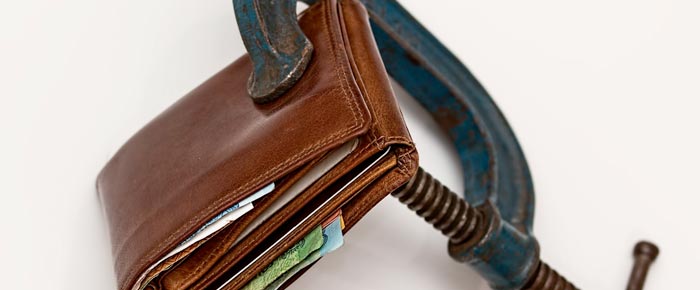Tips to help you stop spending & start saving

Here are out top tips for New Zealanders who are looking to save money, be it for a deposit on your first home or to finance that trip you’ve been dreaming about for years.
If your monthly income is being entirely used up without a single cent going toward savings, it’s time to stop spending and start saving!
Saving starts with a decision to attain your goals
When it comes to the moment that we decide that we need to start saving money, the motivation is usually derived from a desire to attain a certain goal or a range of goals. This could be a decision that you simply must start your own business and escape your 9-5 or that it’s time to buy a home and saving for a 20% deposit is the ideal way forward.
Write your goals down
If you want to start saving it’s crucial that you write out your goals and make a commitment to attain these goals. If you don’t feel excited to get to work on these goals, you’re probably focusing on the wrong things and need to adjust your focus and come up with goals you’re actually passionate about.
Tips on setting financial goals
- Always start with your top level goals – write them out.
- Using your top level goals, write mid level goals or milestones which you’ll encounter on your way to achieving your top level goals.
- Write out daily actions that you need to take to achieve both your mid and high level goals.
- Create a personal budget that is realistic but will also help you achieve your goals.
- Review your budget and goals every other month.
- If you find that you’re not sticking to your list of actions, change them or find out where you’re going wrong and try to change this.
Tip #1: Cancel accounts & contracts you don’t need
Have a gym membership that you never make use of? Paying a mobile phone contract and never use up all your minutes or data? Paying monthly account fees on credit cards you don’t even use? You need to make a list of all of your accounts and go through them with a fine toothed comb. If you don’t make use of a certain account or contract you should cancel it or downgrade to a cheaper version to save.
If you have any clothing or store accounts and are using them a little bit too much, cancelling these accounts could deter you from spending money and help you save big. Cancel and downgrade all possible accounts and do it right now!
Tip #2: Use savings to pay short-term high interest debt
Interest gained on savings is always much lower than interest paid on debts, especially high interest short-term debts like credit cards, store cards and short-term loans. If you have savings, consider paying off such debts as you will save a lot of money in the long run.
Watch out for early repayment penalties
The only pitfall to avoid is getting charged early repayment or settlement penalties. Such fees may completely cancel out any savings you would’ve made on interest and you’ll therefore be losing out on interest earned on your savings and the penalty amounts.
Tip #3: Stop eating out & buying coffee
Dining out once or twice a month is fun and won’t necessarily cause a financial crisis but, when dining out or buying take-aways for lunch or dinner on a regular basis becomes the norm, you can be certain you’re spending more money than necessary.
Say no to buying lunch at work and pack your own lunch and keep dining out to a minimum or for special occasions only! If you buy coffee on a daily or even weekly basis, stop this terrible habit and start making your own. You’ll be shocked to find out how much you’ll end up saving in just a month!
Tip #4: Stop going to the movies & buying books
When you go to the cinemas you end up not only paying for your movie ticket but also buying popcorn and drinks. You may even want to buy some dinner before or after the movie. Not only is this an extremely expensive exercise but it’s completely unnecessary. Save this money and watch movies and make popcorn at home!
Reading is one of the best ways to increase your productivity and invest in yourself but buying books is an expensive and wasteful habit. Rather than buying books, borrow from friends and family or use a library!
Tip #5: Cut back on utility bills & fuel
Since we all know that a little goes a long way, by cutting down on electric and fuel costs you could save a lot of money. Unplug unused appliances and don’t leave the lights on during the day!
Rather than washing only a few items at a time, make sure the washing machine is full. Switch to energy saving bulbs and use geyser timers. There are hundreds of tips and tricks you can use to save money on utility bills and there are entire blogs dedicated to this topic.
Carpools, public transport & more
When it comes to saving on fuel costs, your actions will depend on your individual needs and habits. If you can carpool, do so. If you can use public transport or walk, do it. There’s no need to drive around aimlessly or spend hundreds on fuel when you could be getting where you’re going a lot cheaper.
Tip #6: Sell unused items
Selling unused household items may not be a long term strategy to save money but it will provide you with a lump sum of cash to get your savings going and will motivate you to keep it up!
Use extra cash to pay off high interest debt
If you’re currently carrying balances on credit cards, payday loans or any form of short-term debt why not sell unused items in your home and pay these debts off?
In addition to clearing up your home and office, decluttering and selling unused items will help you achieve the next tip with much less effort.
Tip #7: Downscale your home, car & living
Many people fall into the trap of upgrading their homes, cars and taking on more expenses as their income increases or they start making more money. What this does is keep you at the same level of wealth as you were before your income improved.
This is one of the most common ways that people get themselves into a devastating debt situation that later requires them to apply for bankruptcy or debt review services to simply get out of the situation.
Downscaling means looking for a smaller or cheaper apartment or home in an effort to pay less rent and cheaper utility bills. There’s no reason to be living above your means or spending spades of cash on rent when you could be putting that money towards acquiring assets and developing savings for your goals.
Tip #8: Shop around for deals & buy smart
This tip is all about putting a little bit of mindfulness into your shopping and spending. Pre-plan meals for at least a week in advance and buy exactly what you need and nothing more. This allows you to not only buy in bulk and save but it allows you to control what you and your family eat and is much healthier than buying food on the run or eating unhealthy pre-packaged dinners.
Use vouchers & discount offers to save
There are many specials that you can take full advantage of and save a lot of money if you’re simply willing to look and shop smart. Use vouchers and discount offers whenever possible, the difference to your wallet will be astounding! This doesn’t only work for food but for appliances, clothes and all sorts of items.
Tip #9: Use credit & retail accounts with caution
If you can avoid taking out loans, using your credit card or shopping using your retail cards, you will save yourself a lot of money. When it comes to loans not only do you pay interest but you may also pay fees and, if you miss a payment penalty fees as well.
With regard to credit cards you have to pay interest on any outstanding balance. Finally, retail accounts also carry interest rates but this is not the only danger to making use of them.
If you use too many of your retail accounts you may find yourself in a position where simply making the minimum payments on all your accounts will drain your income and you’ll simply be left without enough money to make it through the month.
Tip #10: Earn more income & get the best savings accounts available
If you’re not making enough money to cover your living expenses as well as put some money towards savings, there is no way around it; you need to earn more money. Whether you choose to work on getting a promotion, starting a small business, making money online or finding a weekend job, this is one step that you need to commit to.
It’s important to remember not to use this additional income to live more lavishly but actually put it towards building wealth through savings and reaching financial goals.
Bonus tip: Notice versus no notice savings accounts in New Zealand
A no notice savings account is the more common type of savings accounts that New Zealanders make use of. With this savings account you can access your money at any time without having to provide notice to your bank.
This may be a convenient feature but this lowers the interest you earn significantly. In addition, for many of us, easy access to our savings provides us with the temptation to use the money for impulse purchases, shopping and other non-essential spending.
On the other hand, notice savings accounts require the holder to provide the bank or credit union with notice that ranges from 32 to 150 days. This type of savings account offers the best interest rates in the county and, due to the notice for access, will prevent you from using your savings for impulse shopping.



